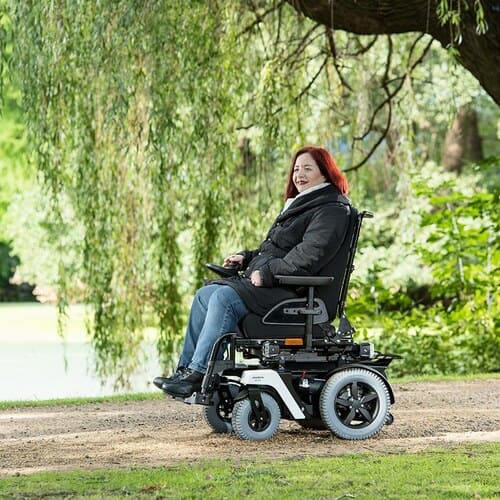Mobility challenges can significantly impact one’s quality of life, making everyday tasks daunting. Electric wheelchairs offer a solution, providing independence and ease of movement. However, the cost can be prohibitive. Fortunately, Medicare offers coverage for electric wheelchairs under specific conditions. This guide will walk you through the eligibility criteria, application process, and essential considerations to help you navigate Medicare’s coverage for electric wheelchairs.

Understanding Medicare’s Coverage for Electric Wheelchairs
Medicare Part B (Medical Insurance) covers durable medical equipment (DME), including electric wheelchairs, when prescribed by a doctor for use in the home. To qualify, the equipment must be deemed medically necessary.
Eligibility Criteria
To be eligible for an electric wheelchair under Medicare, the following conditions must be met:
Medical News Today
- You have a health condition that causes significant difficulty moving around your home.
- You cannot perform daily activities (e.g., bathing, dressing) even with the help of a cane, walker, or manual wheelchair.
- You can safely operate the wheelchair or have someone available to assist you.
- The equipment is intended for use within your home.
Steps to Obtain Medicare Coverage
Navigating the process requires careful attention to detail. Here’s a step-by-step guide:
Hoveround
- Consult Your Doctor: Schedule a face-to-face examination to discuss your mobility issues.
- Obtain a Written Prescription: Your doctor must provide a detailed prescription outlining the medical necessity for the electric wheelchair.
- Choose a Medicare-Approved Supplier: Ensure the supplier accepts Medicare assignments to minimize out-of-pocket costs.
- Submit Necessary Documentation: The supplier will submit the prescription and any required forms to Medicare.
- Await Approval: Medicare may require prior authorization for certain models. Approval times can vary.
Costs and Considerations
Understanding the financial aspects is crucial:
- Deductible: You must meet the annual Part B deductible before coverage begins.
- Coinsurance: After the deductible, Medicare typically covers 80% of the approved amount; you are responsible for the remaining 20%.
- Rental vs. Purchase: Depending on your situation, Medicare may cover a rental or purchase. Discuss options with your supplier.
Types of Electric Wheelchairs Covered
Medicare covers various types of electric wheelchairs, including:
- Standard Power Wheelchairs: Suitable for individuals with limited mobility but sufficient upper body strength.
- Heavy-Duty Power Wheelchairs: Designed for individuals weighing over 300 pounds.
- Complex Rehab Power Wheelchairs: Customized for individuals with severe disabilities requiring specialized features.
Tips for a Smooth Process
To ensure a seamless experience:
- Maintain Thorough Records: Keep copies of all medical evaluations, prescriptions, and correspondence.
- Communicate Clearly: Ensure your doctor and supplier are aware of Medicare requirements and deadlines.
- Follow Up: Regularly check the status of your application with both the supplier and Medicare.
Conclusion
Securing Medicare coverage for an electric wheelchair involves meeting specific medical criteria and navigating a detailed application process. By understanding the requirements and maintaining open communication with your healthcare provider and supplier, you can enhance your mobility and independence. Always consult with Medicare or a knowledgeable advisor to ensure you have the most current information and guidance tailored to your situation.